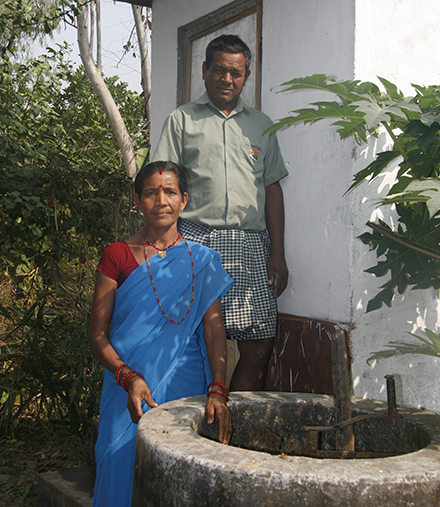Imagine having to go to the bathroom out in the open. No walls. No doors. Subject to the elements. You try your best to avoid the gaze of your neighbors and the bites from scorpions and snakes that roam the area.
To many of us, this scenario sounds like a nightmare. However, for the millions of people living in Asia with no toilets, this reality.
In Karmaiya, a village in Southern Nepal, going to the bathroom outside was a common practice. The residents would go out into the farms either early in the morning or late at night to avoid being seen. They were constantly on the lookout for wild animals or insects that could attack them. Even relatives that would come to visit Karmaiya during festivals were forced to defecate in the open.

The practice dangerous and unhygienic. Without access to toilets, the community is subject to disease and, in some cases, death.
In 2010, Ganga Rasaili, a villager from Karmaiya, joined Bihani Family, a Heifer International self-help group (SHG). The participants learned about the benefits of improved sanitation. The Bihani Family SHG made a plan to build toilets in each of the participants’ houses. Rasaili and the other members received loans of $350 from the Agriculture Development Bank to build hygienic toilets.
Today, almost all of the members of the SHG have toilets in their home. Open defecation is no longer a common practice. Rasaili and the other members have made huge strides forward. The group works with the village’s local youth club to clean their community every month and before special events. The farmers also work to make compost from household waste and livestock manure.
“We learned a lot from the SHG,” said Bimala Karki, the president of the Bihani Family SHG. “Our community was covered in dirt and flies while other communities were clean and organized. We were motivated to do better. We wanted to make our community clean and beautiful.”
Thanks to the hard work of the Karmaiya residents and the Bihani Family SHG, the village is changing for the better.